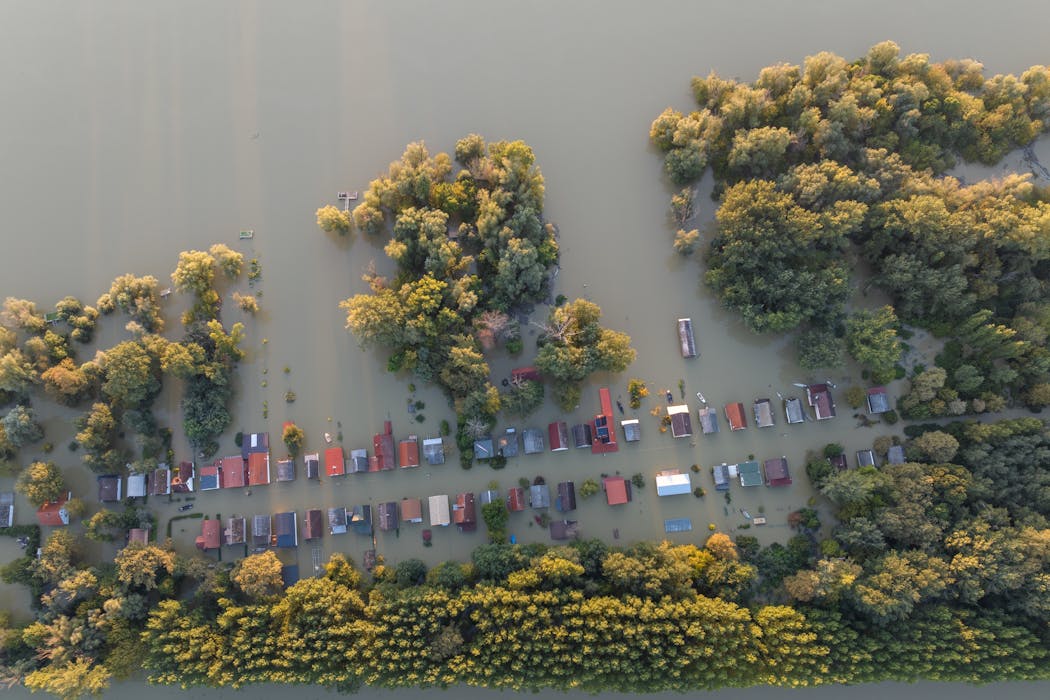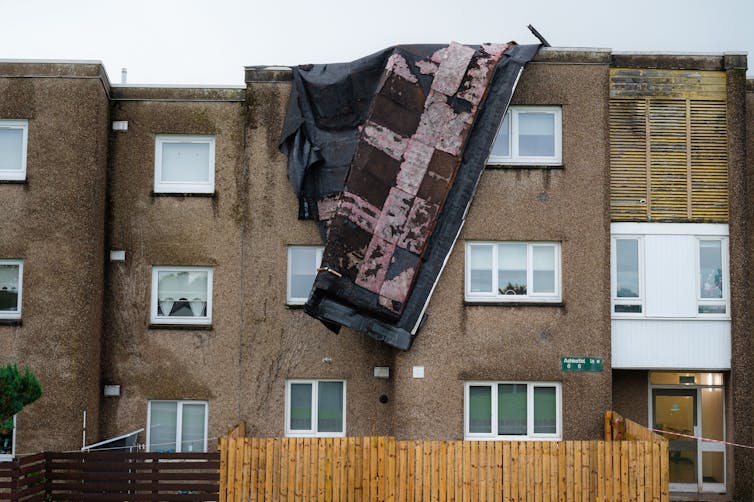
Temperatures across Europe are rising at twice the global average. This alarming trend is leading to more frequent and intense heatwaves, droughts, floods and storms.
But climate change isn’t just about extreme weather. It damages ecosystems, infrastructure and economies, plus people’s resilience and prosperity, meaning the European way of life is at risk.
The latest information from the European Environment Agency shows that while progress is being made, the state of the environment is deteriorating. Europe is the fastest warming continent and major economic and social losses from climate-related events are mounting – with more than €738 billion (£643 billion) in losses from 1980-2023, and over €162 billion from the last three years.
Adaptation (action required for societies to adjust to the adverse effects of climate changes) is needed but lagging behind the escalating risk due to inconsistent and under-resourced approaches. As a result, ecosystem and societal resilience are undermined.
Healthy ecosystems underpin sustainable living by ensuring food and water security, and providing essential goods and services.
For people living in Europe, the effects are already visible and personal. People are increasingly exposed to disease, pollution, and even premature death due to extreme weather. Homes and communities face destruction. In 2025, extreme weather has included extensive floods in Valencia, Spain, and wildfires raging across Turkey, Portugal, Cyprus, France and Spain.
Read more: Three ways to reduce Europe's flood risk
Public services – such as health services and early responders, like the fire service – come under pressure. Daily life becomes more uncertain. More than 464,000 people across Europe are already experiencing the trauma of forced displacement, due to floods, wildfires and storms.
Currently, these are internal displacements, meaning they have not crossed borders into other countries. But this extreme weather is now occurring more frequently, so the risk of wider displacement is rising.
Storm Amy hit the UK in early October. It brought down many trees and cut thousands of people off from power for days, disrupting train travel and leaving many homes without internet access – cutting off a lifeline for many. Scotland was particularly affected, with Scottish and Southern Electricity Networks having to restore power to over 86,000 properties.

These disruptions do not just take a physical toll. They bring significant financial and emotional stress. Families, businesses and entire communities are shouldering growing economic burdens from climate-related damages.
There is a growing sense of stress and anxiety tied to the uncertainty and inevitability of climate-induced extreme weather. The emotional strain only deepens when particularly vulnerable communities are faced with the aftermath, such as villages in Spain and Portugal, where wildfires tore through forests, homes and businesses.
With extreme weather being predicted more frequently, it is distressing and frightening to rebuild when resilience has already been lowered by damage.
Political shifts across Europe are adding pressure to an already fragile situation. Progress is jeopardised by a rollback of green policies, denial of climate science, and a return to polluting practices such as the EU’s delayed launch of its anti-deforestation reporting law for the second time, meaning forests continue to be in threat of destruction to produce goods and commodities such as palm oil, soy and beef. As these setbacks mount, climate anxiety grows, and our ability to meet climate goals drifts further out of reach.
A more prosperous path
Failing to act now will lead to higher costs down the line and deepen existing inequalities. On the other hand, strengthening green policies and sustainable practices offers a path to a healthier, fairer and more prosperous future. The cost of inaction far outweighs the costs associated with acting now.
Some parts of Europe are building resilience by focusing on clean energy, building a more circular economy and protecting natural assets such as forests and rivers.
Schemes such as the €4.2 billion fund to support 77 decarbonisation projects as part of the EUs clean energy transition should help to reduce emissions by 2050. Plus, there are plans to protect and properly manage natural environments such as peatlands, which are excellent carbon stores.
Despite challenges, such as the future of political agendas and willingness to engage in the green agenda, there is reason for optimism. The EU has already cut greenhouse gas emissions by 37% since 1990, proving that meaningful change is possible. Europe has emerged as a global leader in climate action, and with continued effort, it can stay on course to meet ambitious green goals to reach net zero by 2050.
But success requires everyone, governments, businesses and communities, to work together. By uniting social, political and environmental efforts, we can still secure a liveable, thriving planet for future generations.
Don’t have time to read about climate change as much as you’d like?
Get a weekly roundup in your inbox instead. Every Wednesday, The Conversation’s environment editor writes Imagine, a short email that goes a little deeper into just one climate issue. Join the 45,000+ readers who’ve subscribed so far.
Rosemary Anthony does not work for, consult, own shares in or receive funding from any company or organisation that would benefit from this article, and has disclosed no relevant affiliations beyond their academic appointment.
This article was originally published on The Conversation. Read the original article.







